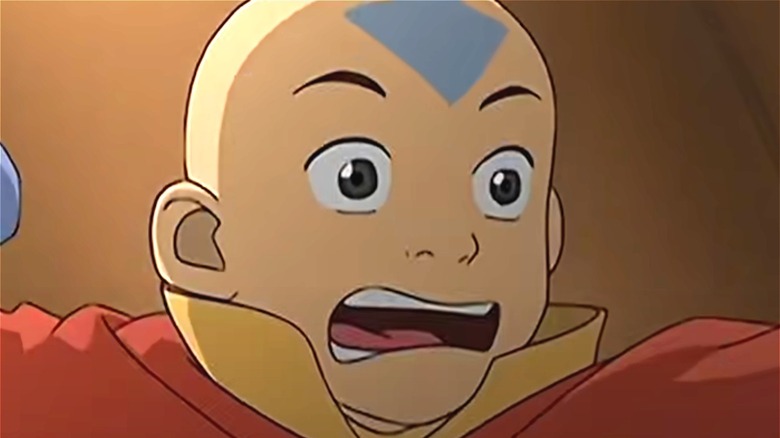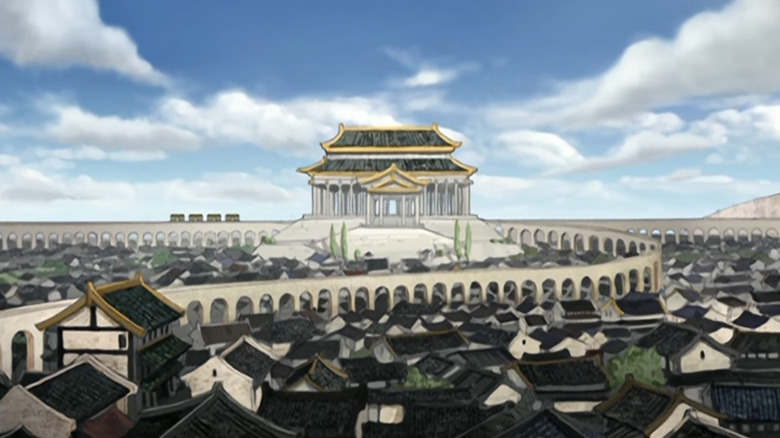Is This The Worst Job In Avatar: The Last Airbender?
What would it be like to live in a land where essentially four superpowers are commonplace? This is one of many questions explored by Nickelodeon's acclaimed animated series "Avatar: The Last Airbender" (via IMDb). The show builds on the premise that the four classical elements — fire, water, earth, and air — can be "bent," or wielded, and on one level, it follows the compelling story of a boy named Aang and his friends as they grow in their own abilities and endeavor to save their homelands from the oppressive Fire Nation.
However, perhaps one of the series' greatest triumphs is that throughout our main characters' travels, we get a sense of a much vaster and more intricate world. Against a backdrop of iconic landscapes and supernatural battles, we catch glimpses of citizens simply trying to navigate life and get by, and their more mundane existences do just as much as this story's more central escapades to flesh out its setting.
Just like our own world, the land of "Avatar: The Last Airbender" probably includes people who have to work a nine-to-five whether they have supernatural gifts or not. As cool as it sounds to manipulate flames or summon geysers with our minds, some cases of monotony cannot be avoided by having superpowers.
Managing the monorail transit system
No, it's not selling cabbages, but this career can be found in the metropolis of Ba Sing Se, the Earth Kingdom's grand capital. Unlike its sequel series, "The Legend of Korra," the era portrayed in "Avatar: The Last Airbender" has yet to experience its own industrial revolution. There are no cars, buses, or trains since there is no electricity or steam power in the Earth Kingdom. The people of Ba Sing Se have the option to either walk and ride carriages around the sprawling city or utilize the unique strength of their native earthbenders. Unfortunately, this means that some earthbenders must remain stationed behind monorail cars to push them along the stone rails — and these rails stretch and spiral for miles all over the capital.
It's important work, no doubt — the monorails make the lives of Ba Sing Se's hundreds of thousands of civilians much easier – but if you had the ability to bend the very earth to your will, serving as a glorified draft horse might not be your first choice of career.

